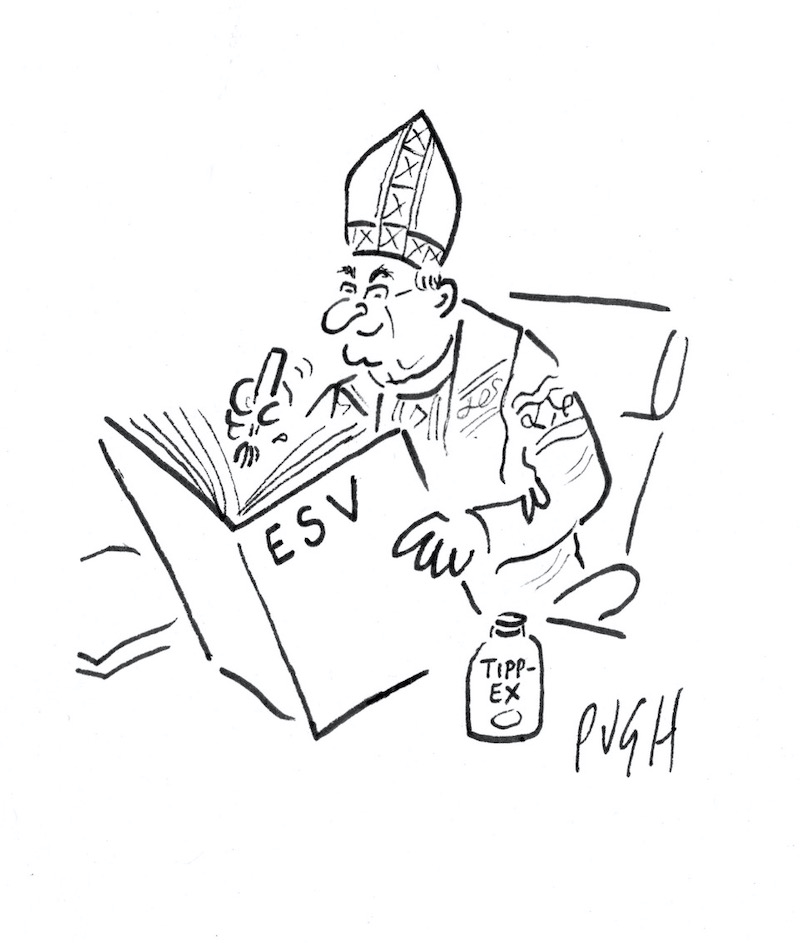The translation of the Bible to be used in the new edition of the lectionary for Mass in England and Wales is being amended to use gender-inclusive language where contextually appropriate, The Tablet can reveal.
For 18 months, the Department of Christian Life and Worship of the Bishops’ Conference of England and Wales has been adapting the text of the English Standard Version Catholic Edition so that inclusive translations are used whenever translators’ footnotes in the original text of the ESV-CE indicate they are appropriate, for example when the Greek word adelphoi (brothers) refers to both men and women.
The wording of the ESV-CE has been adapted to make it more inclusive approximately 142 times in the two volumes of the lectionary already prepared.
The Archbishop of Cardiff, George Stack, chair of the Department of Christian Life and Worship, told The Tablet: “We can’t change the language of the Bible, but we can adapt it so that it speaks powerfully to people in this age.”

He emphasised that a number of adaptations are being made to the ESV-CE to make it appropriate for use in a UK context, including spelling, punctuation and the Anglicisation of words and phrases where appropriate.
But he stressed the importance of preserving language that exists within a deeper theological context, for example the use of “son” when referring to filial Sonship in Christ in Pauline theology: “Often there are different levels of meaning in the same word. For example, when Jesus is talking to the Twelve, he isn’t talking to all the disciples, men and women, he is talking to the apostolic college as we understand it.
“Similarly son or daughter means one thing in one context, but at the deepest level of all – St Paul in Galatians or Romans, for example – it talks about being sons in the Son, and what God sees in Jesus Christ his Son. That’s a very deep theology, about being a son in the Son, of filial adoption in Christ Jesus, that’s a profoundly different and very deep theology.”
He acknowledged that there has been controversy over the use of inclusive language in the new translation, and said this had always been a consideration for the bishops and editorial committee. “We have been immersed in this work for 18 months, and we haven’t had time to engage in conversations with people who are reading the text more superficially, who aren’t reading what’s there. The ESV-CE is quite clever [in its use of inclusive language], although it’s a pity they are in the footnotes.”



 Loading ...
Loading ...